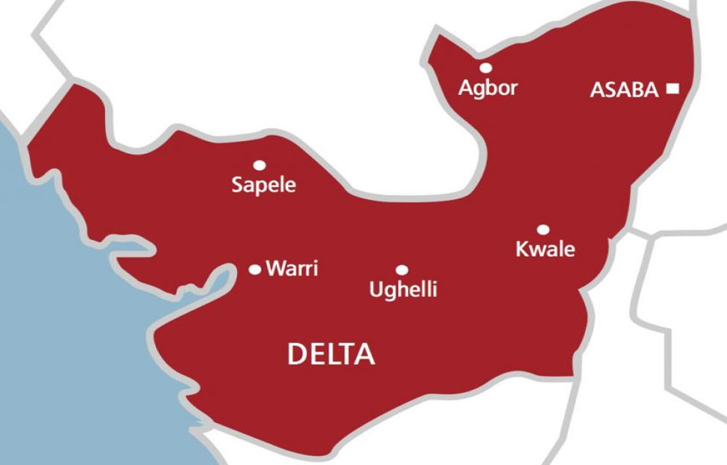Health
OFFA GENERAL HOSPITAL: A BEAUTIFUL PLACE TO DIE

By Jimoh Taofik Adekunle
8 years after the Offa General Hospital was renovated by the then Governor, Abdulfatah Ahmed, the hospital has turned into a “beautiful place to die.”
The Governor at the time of recommissioning the hospital, was quoted to have said that “Certainly, our determination to provide qualitative healthcare necessitated the renovation and equipping of five general hospitals, including that of Offa.”
But for many citizens that visit the general hospital, this hope for qualitative health care have continued to elude them, often than nought, becoming an outright nightmare.
AN UNENDING TALE OF WOES AND AGONY
Speaking with various patients and families who have used the general hospital, most of whom pleaded anonymity, Biztellers uncovered mostly tales of horrors from patients and their families
According to a mother to a new born baby, the life of her and her child were saved because she listened to the advice of a friend.
“On Friday, December 9, 2022, I went to the hospital for delivery and, according to the nurse on duty, I was told that it was not yet time for delivery. The nurse said something about my EDD (Expected Date of Delivery) but my friend advised me to seek a second opinion and I went to the health centre behind Olofa palace for assessment. I was told it’s time for delivery. I gave birth before 9pm that night.”
For the family of Mr. Sunday Obinna, a trader in Offa, speaking with our reporter, he said, “Yes, my wife was once a victim at the point of delivery. We were going up and down without anybody to attend to us. Someone would later attend to us when I began to cause a scene and draw people’s attention. She said the doctor wasn’t around, and that we should come back or wait for him. We had to immediately go to a private hospital where my wife delivered within an hour. I regretted allowing her to go to that hospital for antenatal care.”
While the first two stories ended with a seemingly happy ending, Mr Babatunde’s new family of less than a year faced a horrific two days that ended in the loss of their first child.
“December 9, 2022 , my wife was due for delivery and was laying on the bed at the LDR (labour, delivery, and recovery room) of Offa General Hospital. She wouldn’t be attended to for two days (Friday till Sunday). We lost the baby.”
For the family of Mr Yusuf (not real name) as well, there was no happy ending to their horrific medical experience with the general hospital as they also lost their baby.
Speaking with Biztellers, he said, “Hmm… Nov 15, 2021 is an unforgettable day in my life because of the bad experience I had on it.
My wife gave birth on this day and we lost the baby due to incompetence of the doctor. My wife was due for delivery and we rushed her to the hospital.
I discovered that the medical practitioners there didn’t know what to do after listening to them as they aired different opinions as to what to do. I could hear them talking above one another, like chatterboxes.
Some suggested Ceasarean Section delivery and others suggested the use of vacuum. They subsequently agreed to use the vacuum. It was the vacuum they used to injure the baby. How? They used a vacuum for a baby whose head had not come out of the womb.
The doctor on duty that day was called Doctor Umar. I can never forgive that man. He caused us to loose the baby.
That is just their way. They don’t care.”
Balikis Adeola, a mother of four, also narrated to Biztellers how she lost her first born to the negligence of the hospital’s staff in 2013.
“Same thing happened to me in 2013, they made me lose my baby. They abandoned me and went to sleep. I delivered the baby myself and the baby had already inhaled a lot of blood and dirt before coming out. They had to beat him before he cried. I later lost the baby the third day at University of Ilorin Teaching Hospital (UITH) in Oke Oyi, Ilorin.”
Another source intimated that, “we had to contribute money for fuel when my wife wanted to give birth. Also, when my sister was in serious conditions, we were the ones that brought the power generator from home. ”
Another person also spoke on how her brother died during the weekend at the hospital due to the “absence of first aid equipment and no fuel in the ambulance that was supposed to convey the victim to Ilorin for proper treatment.”
Yet another account of medical woes stated that “In May 2014, I did a blood transfusion for my mother. I was told to hold a bottle and stretch my hand forward and backward after they passed a string (IV Giving Set) into my veins and the other end into a blood bag.”
One of the most horrifying story was retold to our reporter by Hon Lawal Oluwatosin, who had earlier posted about his sister, Salaudeen Fauzeeyah Onaopemipo, who lost her life in Offa General Hospital on Saturday, December 10, 2022. The deceased came from Okeho, Oyo State.
He said, “we lost a final year student of Kwara State Health Technology, Offa, Public Health Department in the Labour Room on Saturday for not being attended to by the staff of the Offa General Hospital.
A final year student of Kwara State Health Technology Offa, a Muslim sister and blood sister lost her life yesterday when she was in the labor room at General Hospital Offa. She died along with her child. These are unforgettable memories. May Allah Subuhano’huwa ta’Allah grant them jannah fridaus. Ameen.
My blood sister, Fauzeeyah came to Offa to have a better education and bright future at Offa, which we didn’t know that she won’t return back home alive. Allah Subuhano’huwa ta’Allah, you’re unquestionable.”
For Mr Yusuf (not real name), he believes that a major part of the problem at the general hospital is the fact that the doctors all have their own private practices and he believes lack of money is why people become victims of the medical disaster the hospital has become.
“The problem with them is that those doctors have their own private hospitals. They attend to patients there more than the General Hospital. Some do refer patients to their own hospitals.
If I have more money that time I would charge them to court. You won’t believe that they broke one of the baby’s hands. I was crying like a baby.
It was a very bad experience. Bad experience.”
In a lengthy submission on Offa Descendants’ Union (ODU) WhatsApp group, the Commissioner for Water Resources, Femi Agbaje, responded to one such incident posted on the group by another member of the group on Monday.
The commissioner stated that government officials always have to first determine the veracity of claims before responding.
While confirming the incident occurred, Mr Agbaje concluded that death was inevitable for everyone.
“I listened to an audio clip this morning where a lot of allegations were made in respect of this particular incident . I immediately proceeded to the hospital, at least, to do some findings and see where the government could address some of the issues raised.
It is true that a lady was admitted and delivered a stillbirth and the lady eventually died as a result of persistent bleeding.”
He also said he couldn’t confirm yet if her death was as a result of negligence on the part of the attending medical personnels, stating that he can only rely on the medical opinion of the CMD since he himself is not a medical professional.
While admitting that the hospital can be better equipped, he said the government is actively proferring solutions to the problem of infrastructure.
“While it is true that there is erratic power supply in Offa general hospital just like in many other establishments of such nature in our country today, we should not portray our general Hospital as the worst in the state. The Offa general hospital, in order to address this power problem, has an alternative arrangement of inverters which provides light whenever the light is out.
“I was conducted round the facilities at wards, emergency unit and maternity. This debased the lies that patients are being forced to buy fuels to power generators before they can be attended to. Although the hospital is on 11kva which is grossly inadequate, we need to migrate to 33kva. The process which I have started today even though it is not an easy one.”
He also claims that the doctor figure quoted for the hospital is false.
“Also the nos (number) of the doctors we have are not two as being alleged even though the 5-7 that the record shows they have is still not adequate.”
DOCTOR SHORTAGE
Nigeria, according to a foreign publication, Guardian of London, Is one of the top exporters of medical talent to other countries in the world.
In South Africa, it is estimated that there are 5,000 Nigerian doctors; in the UK, that figure is around 7,500, according to figures from the UK General Medical Council.
Currently, Nigeria is the highest country of origin, outside India and Pakistan, for foreign medical doctors working in the United Kingdom.
Nigeria, according to research, lost over 9,000 medical doctors to the UK, Canada and the US between 2016 and 2018.
A total of 727 medical doctors trained in Nigeria relocated to the UK alone in six months, between December 2021 and May 2022.
The data from the Register of the Nursing and Midwifery Council (NMC) of the UK also shows that the number of Nigeria-trained nurses in the UK increased by 68.4 percent from 2,790 in March 2017 to 7,256 in March 2022.
The patient ratio in the country is currently estimated at 1 doctor to 10,000 patients as opposed to the WHO recommended ratio of 1 doctor to 1,000 patients.
Dr Chris Ngige, the current minister for Labour and employment have been quoted in the press stating that “Nigeria has more than enough doctors” and that the government is not bothered by the exodus of doctors out of the country stating that Nigeria is proud to be an exporter of medical talent while many hospitals in Nigeria continue to lack the required necessary medical talents to run properly and provide proper medical care to Nigerians.
Health
Global Experts Tackle Stroke Management Crisis With Training In Asaba

Experts consider that stroke is a growing health crisis in Nigeria, affecting thousands of lives every year.
To tackle this challenge, the World Stroke Organization (WSO), Stroke Action Nigeria, Federal Medical Centre (FMC) Asaba, Asaba Specialist Hospital (ASH), and FMC Onitsha joined forces for an intensive four-day training program. Their mission? To equip healthcare workers with the skills to prevent, detect, and treat strokes more effectively.
The program brought together leading stroke specialists from around the world, including WSO President Prof. Jeyaraj Pandian, former WSO President Prof Sheila Martins, Dr. Rita Melifonwu, CEO of Stroke Action Nigeria and Board Member of the World Stroke Organisation, and other experts from Nigeria, India, Canada, Rwanda, and the UK. Through hands-on training and expert-led sessions, healthcare workers learned best practices for recognizing stroke symptoms, responding in emergencies, and providing life-saving care.
ALSO READ: 2027: Okpebholo Assures Tinubu With Snatch Of 17 LG Chiefs From PDP
Dr. Emmanuel Ezunu, Chief Consultant Neurologist at FMC Asaba, stressed the urgency of the training, saying, “Stroke is the leading cause of disability worldwide and the second leading cause of death. We all need to work together to reduce the burden of stroke. This training is a crucial step to ensure our health workers are well-equipped to handle every stage of stroke care.”
The training sessions took place simultaneously in multiple locations, including FMC and ASH in Asaba as well as in Onitsha, Anambra. Dr. Francis Ugoeze, Lead for the Research Study Recruitment and Implementation Team, warned about the rising risks among young people due to poor lifestyle choices. “It’s important to watch what we eat, avoid junk food, smoking, and hard drugs, and stay active,” he advised.
Dr. Melifonwu emphasized that stroke is not just a health crisis but a preventable one. “One in four adults over 25 is at risk. We need more awareness and lifestyle changes to reduce stroke cases,” she said. She also shared plans to establish ‘Life After Stroke’ centers in Nigeria, offering much-needed support for survivors, especially those struggling financially.
Dr. Chiamaka Okereke, a consultant neurologist and member of the research team, highlighted how these efforts are about more than just education—they’re about saving lives. “If more people recognize stroke symptoms early and seek medical help immediately, we can prevent many unnecessary deaths and disabilities,” she explained.
Experts at the event also called on the government to take action by increasing public awareness and investing in stroke care facilities. They emphasized the need for acute stroke units and post-stroke rehabilitation centers to provide patients with the care and support they need to recover.
This initiative represents a major step toward a future where stroke is no longer a leading cause of disability and death in Nigeria. With greater awareness, improved healthcare training, and better facilities, countless lives can be saved.
Health
Nigeria Strengthens Airport Screenings Amid Spread Of China’s HMPV Virus

The Nigerian government has increased surveillance at major international airports in response to the outbreak of Human Metapneumovirus (HMPV), recently discovered in China and now spreading to several countries, including India, Hong Kong, Malaysia, and Kazakhstan.
Port health officers have begun screening arriving passengers for symptoms of the virus, following a directive from the Minister of Health, Muhammad Ali Pate.
According to a source at Murtala Muhammad International Airport (MMIA), Lagos, “There is no cause for alarm as the Port Health Service has been mandated to start screening the passengers, and we are not taking anything to chance.”
The Human Metapneumovirus has sparked global concern after over 5,000 hospitalisations were reported in the United Kingdom due to respiratory infections linked to the virus.
READ MORE: Speed Darlington Sues IGP For N300M Over Unlawful Detention
The Nigeria Centre for Disease Control and Prevention (NCDC) has issued an advisory to monitor global developments in collaboration with the Ministry of Health and Social Welfare. Dr Jide Idris, Director-General of the NCDC, stated, “We aim to provide timely, accurate information and guidance to keep the Nigerian public informed and prepared.”
The agency also debunked rumours that the World Health Organization (WHO) had declared HMPV a Public Health Emergency of International Concern (PHEIC), urging the public to disregard such claims.
Screenings have commenced at key airports, including MMIA, Lagos, and Nnamdi Azikiwe International Airport, Abuja. Despite the heightened precautions, the Nigeria Civil Aviation Authority (NCAA) has yet to issue a formal circular to airlines on mandatory passenger checks.
The surge in respiratory infections globally has heightened pressure on health systems. In the UK alone, flu cases rose sharply over the holiday period, with over 5,000 hospitalisations reported by December 29, 2024. There has also been an increase in hospitalisations linked to COVID-19, norovirus, and RSV.
As global temperatures drop and respiratory infections continue to rise, Nigerian authorities remain vigilant, aiming to prevent the spread of HMPV within the country.
Health
Africa Leads Global Progress In HIV/AIDS Fight, Says WHO
Africa has made remarkable progress in reducing new HIV infections and AIDS-related deaths, according to the World Health Organization (WHO).
Dr. Matshidiso Moeti, WHO Regional Director for Africa, highlighted these achievements in her statement to mark this year’s World AIDS Day, themed “Take the Rights Path: My Health, My Right” on Friday.
READ ALSO: Atiku Gloats Over AUN’s Achievements Ahead Of 20th Anniversary
For the first time in 2023, the number of new HIV infections outside sub-Saharan Africa surpassed those within the region, underscoring Africa’s significant progress.
The continent is also a global leader in advancing the 95-95-95 UNAIDS targets aimed at ensuring 95% of people living with HIV know their status, 95% of those diagnosed are on treatment, and 95% of those treated achieve viral suppression.
“Seven countries have already achieved the targets, with the overall rating for the region currently at 90-82-76,” said Dr. Moeti. “About 21.3 million people are now on antiretroviral treatment, raising their life expectancy.”
Botswana and Namibia were recognized for achieving significant milestones in preventing mother-to-child HIV transmission, earning silver and bronze tier statuses, respectively, under WHO’s Path to Elimination of HIV initiative.
African countries are also adopting innovative prevention methods, including oral and long-acting injectable pre-exposure prophylaxis (PrEP) and the dipivefrine vaginal ring.
Dr. Moeti stressed that while these tools are vital, their impact depends on accessibility.
“The value of these innovations depends on their universal accessibility,” she stated, emphasizing the need for investments and policy reforms.
Dr. Moeti called for an end to stigma and discrimination, which she said continue to hinder progress.
“We have a collective obligation to protect human rights, specifically ensuring that health care is available to everyone, without any discrimination, regardless of their HIV status, background, gender, or where they live. Stigma and discrimination cannot be allowed to undermine the gains and impede our progress.”
While celebrating these advancements, Dr. Moeti noted that disease outbreaks across the region pose a challenge to already overburdened health systems.
She emphasized the importance of strong, integrated, and person-centered health care systems to meet the needs of vulnerable populations.
“Let’s take this opportunity today to acknowledge the progress, but to also renew our joint commitment to eliminating HIV.
By protecting everyone’s right to health, and reducing new HIV infections, we can achieve an AIDS-free generation and ensure the sustainability of the HIV response,” she urged.
Dr. Moeti also highlighted the crucial role of communities in shaping strategies to eliminate barriers to care.
“We must ensure their voices are heard,” she said, emphasizing that the collective efforts of governments, partners, civil society, health care providers, and communities are essential in the fight against HIV/AIDS.


















